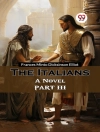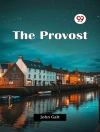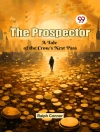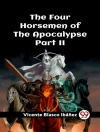In ’Midst the Wild Carpathians, ’ Mór Jókai masterfully weaves a rich tapestry of adventure and romance set against the evocative backdrop of the Carpathian Mountains. The novel delves into the lives of its characters, exploring themes of love, loyalty, and the clash between tradition and modernity. Jókai’s prose is characterized by a lush, descriptive style that vividly brings to life the breathtaking landscapes and cultural intricacies of the region, inviting readers to experience the deep emotional currents that drive human interaction in a time of upheaval. The literary context of the work reflects the nationalistic sentiments prevalent in Hungary during the 19th century, as Jókai’s characters navigate both personal and political conflicts amid the vivid imagery of their homeland. Mór Jókai, one of Hungary’s foremost writers, was deeply infused with the spirit and folklore of his native land. His background as a parliamentary journalist and his passionate engagement with Hungarian nationalism undoubtedly influenced the themes present in this novel. Jókai’s ability to blend fiction with the sociopolitical realities of his time offers readers not just a story, but a lens into the heart of 19th-century Hungary. ’In Midst the Wild Carpathians, ’ readers are invited on a captivating journey that balances romance and adventure with cultural reflection. This novel is a celebration of Hungary’s landscapes and traditions, making it essential for those interested in Eastern European literature and history. Jókai’s masterful storytelling will resonate with anyone yearning for a profound literary experience steeped in the enchanting aura of the Carpathians.
Om författaren
Mór Jókai, born Móric Jókay de Ásva on February 18, 1825, in Komárom, Hungary, was a prolific Hungarian novelist, journalist, and dramatist, often hailed as one of Hungary’s greatest and most popular storytellers. Jókai’s whimsical narratives often interwove Hungarian history with romantic fantasy, which was an innovative blend of reality and fiction that attracted a broad readership during the 19th century. A lawyer by training, Jókai became enraptured by the world of words and literature, championing the cause of Hungarian nationalism through his writings during a period brimming with political upheaval. His extensive oeuvre includes more than 100 novels, and his mastery of the Hungarian language greatly contributed to its literary development. One of Jókai’s more notable works, ’Midst the Wild Carpathians’ is an adventure novel that epitomizes his characteristic infusion of historical lore with melodrama and exotic landscapes. His novels, replete with vivid characterization and buoyant optimism, played a significant role in solidifying Jókai’s repute as a centerpiece of Hungarian Romantic literature. Jókai passed away on May 5, 1904, but left behind a legacy that continues to influence Hungarian literature and national identity. His literary style, combining elements of Romanticism, Realism, and elements of the fantastical, remains an enduring subject of academic interest and literary esteem.












